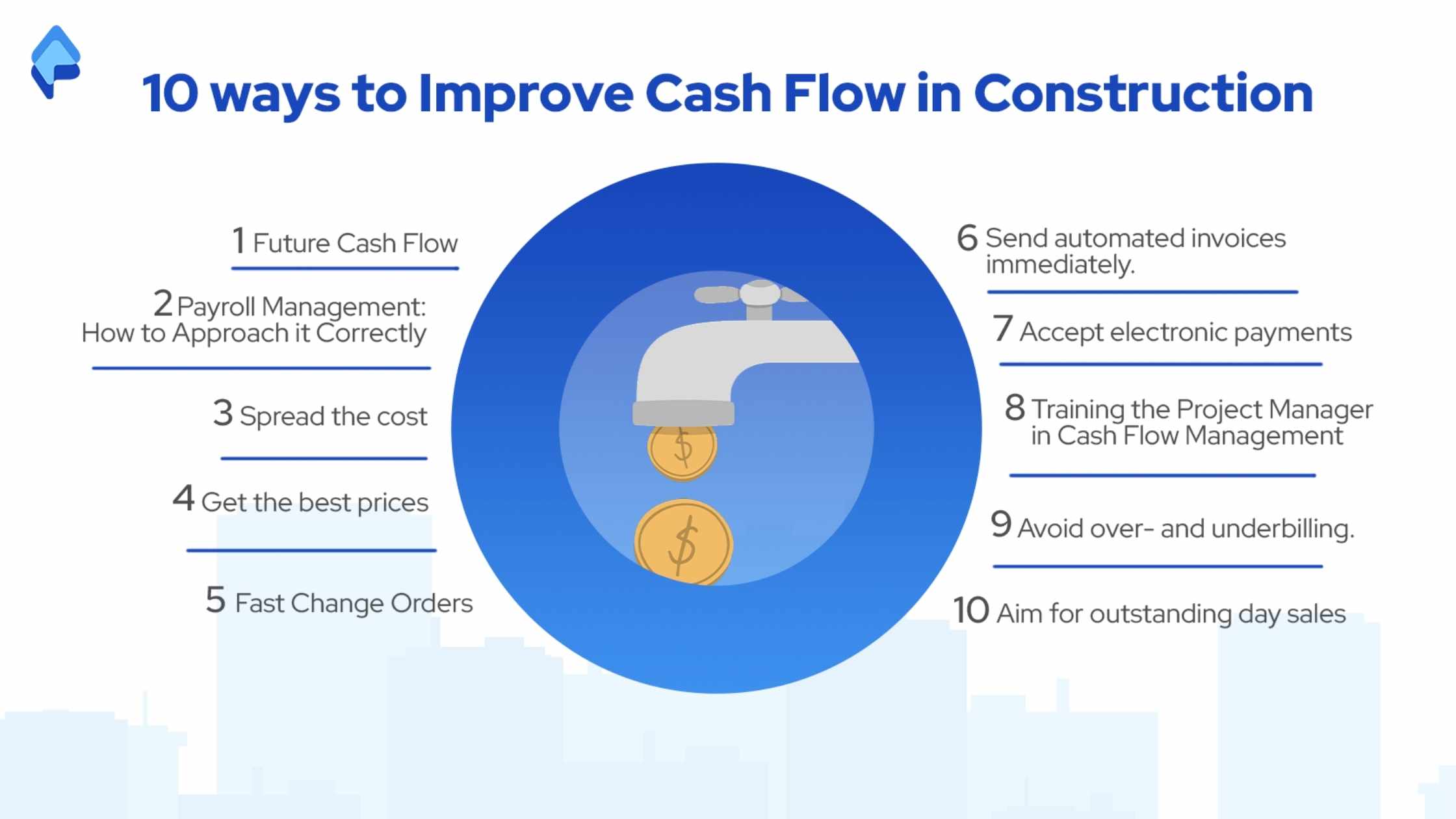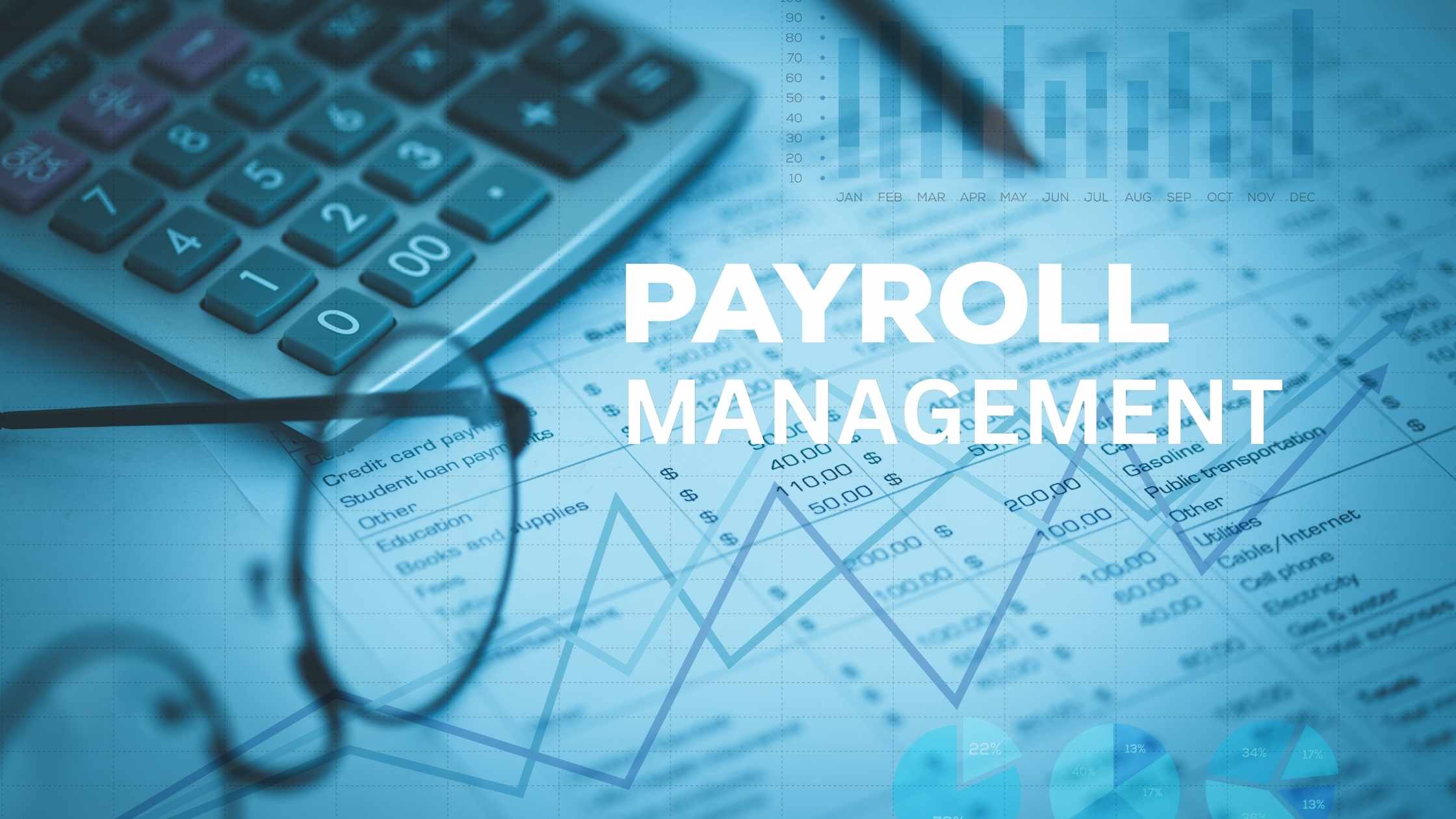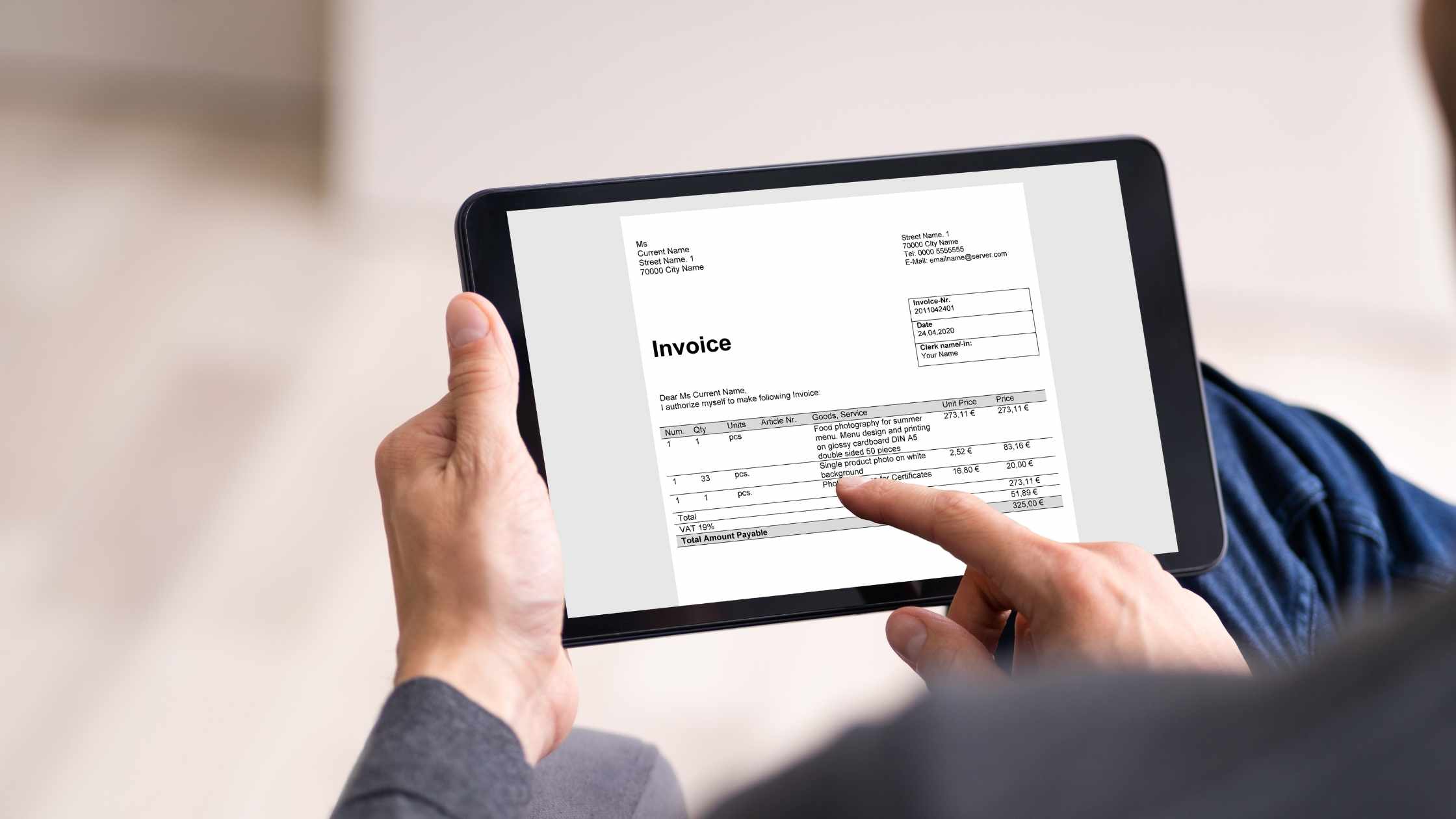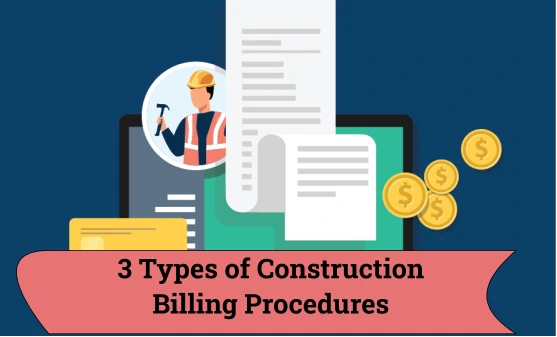What is Cash Flow?
Cash flow is a critical measure in any business. It is the money or cash equivalents transferred into and out of a company at any time. Positive cash flow means that companies have more money than they have liabilities. It allows them to keep their books updated and pay their monthly bills. On the other hand, those with negative cash flow don't have enough money to pay their monthly bills.

Negative cash flow can indicate financial problems that could lead to the downfall of a company. It can be challenging to do this, but there are strategies that construction and contracting companies have to get from losses to gains.
Here are 10 ways to improve cash flow in construction

1. Future Cash Flow It's not easy to project your cash flow in the future. Construction is more complicated than in other industries due to the different levels of jobs and change orders for current projects. Cash flow management software is one way to achieve this. Construction companies can use these tools to get an idea of the income and expenses they will see in the future. You can avoid these events by planning in advance.
2. Payroll Management: How to Approach it Correctly Construction is not like most businesses. Construction workers are paid almost every other week. Subcontractors can be hired to improve cash flow. They are often paid every four weeks. It would be best if you did not do this in any particular circumstances.

Permanent, full-time employees will deliver better results. Higher-quality work can reduce the chances of project setbacks or accidents and increase the likelihood of repeat business, referrals and new clients.
3. Spread the cost It would be best if you never used cash to purchase materials and supplies unless you receive a significant discount. These purchases should be financed instead. Many suppliers offer financing options for contractors, including credit cards, lines of credit, and loans. You will still be responsible for interest and finance charges.
You won't have to pay the entire amount outright, but you can make regular payments. You'll have more cash available to allow your business to continue its operations. You may even be able to deduct the interest and other fees from your business expenses.
4. Get the best prices To ensure you get the best price, comparing suppliers is always a good idea. Every supplier wants to win your business. A supplier will likely offer you the best deal if they know that you are looking for the best deal. You'll save money by lowering your costs.
You can boost your cash flow by shopping around for the best deals on supplies and materials. Just remember to finance your purchases, not pay with cash.
5. Fast Change Orders Construction is prone to change orders. These orders are often caused by a project requiring more time, money, or resources than expected. Extreme weather can also play a part. Instead of waiting for the project to be completed, the project manager should immediately process a change order. This will have a positive impact on cash flow.
6. Send automated invoices immediately. Invoicing can be time-consuming. They are an essential part of your cash flow. Although you can still write your invoices manually, it's better to use software to simplify your work. All invoices should be sent electronically and promptly. Invoices sent ahead of schedule will help maximize your cash flow potential.

7. Accept electronic payments Cash is the king of payments, but your business should also accept electronic payments. This will ensure that your business gets paid quicker, increasing cash flow and allowing for more capital to be used in day-to-day operations, payables, and growth.
8. Training the Project Manager in Cash Flow Management Cash in construction is about 85% generated by project work in progress. This means that cash flow performance depends on cash flow management. You can also offer training and an incentive package based on cash flow performance. This is highly likely to work.
9. Avoid over- and underbilling. Overbilling is a favourite pastime of some project managers. This means the invoice will be more than the job has been completed, increasing the current cash flow. It will also reduce cash flow after the project is completed. Companies that underbill clients hit their cash flow in the short term. What's the best way to go? It is best to bill according to the amount of work done.
10. Aim for outstanding day sales A goal can significantly increase your chances of success. It takes between 60 to 90 days to get paid for construction. It is worth setting a realistic goal of reducing that time to 50 days. This can be done by immediately sending invoices, offering payment incentives, writing clearly defined terms, checking credit reports before making any deals and restructuring terms with nonpayers.
And. . . Because no project is the same, construction companies are different from other businesses. To improve cash flow, you need to use different strategies. The ability of the project manager to manage cash flow will play a significant role. This is why it is essential to hire a qualified project manager or offer cash flow management training to current project managers. Construction companies should have the best project management and do all they can to improve the speed of receivables, which will increase cash flow.






